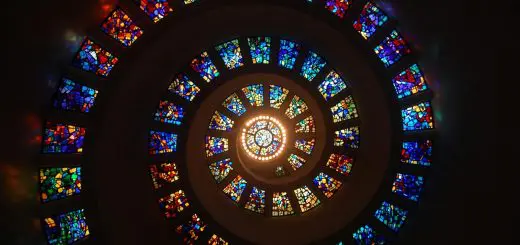Chinese Afterlife Beliefs: Ancestor Worship and Spirit World

Looking for more amazing products? Check out our online store and explore our collection here! Happy shopping!
Before diving in, please note: This post is for informational purposes only. If you’d like to know more about how we approach topics, feel free to check out our friendly Disclaimer Page.
Hey there, amazing readers! 
We’re committed to delivering quality posts, and your support (even just sticking around despite the ads) means everything to us. So, bear with us, and thanks for helping us keep the good vibes rolling. Now, on to the fun stuff!
TRANSLATE BUTTON AT THE END OF THE ARTICLE
Chinese Afterlife Beliefs: An Overview
Chinese afterlife beliefs are deeply rooted in the traditions and cultural practices of the Chinese people.
These beliefs center around honoring ancestors and maintaining a connection with the spirit world.
The concept of the afterlife in Chinese culture is complex and multifaceted, encompassing a blend of Confucian, Taoist, and folk beliefs.
Through rituals, ceremonies, and mythological stories, the Chinese people seek to understand and navigate the mysteries of the afterlife.
Importance of Ancestor Worship in Chinese Culture
Ancestor worship is one of the cornerstone practices in Chinese culture, reflecting the deep reverence and respect that the Chinese hold for their ancestors.
Ancestral veneration is based on the belief that the spirits of the deceased continue to exist in the afterlife and can influence the lives of the living.
By honoring and paying tribute to their ancestors, the Chinese seek to ensure the well-being of their families and communities.
Ancestor worship is an essential part of Chinese identity, connecting individuals to their roots and heritage.
Rituals and Practices for Honoring Ancestors
Chinese families engage in various rituals and practices to honor their ancestors, such as offering food, burning incense, and performing ceremonial rites.
Ancestral tablets or plaques are often displayed in homes or ancestral halls as a way to remember and commemorate deceased family members.
During important festivals like Qingming (Tomb Sweeping Day) and the Hungry Ghost Festival, families visit the graves of their ancestors to clean the tombstones, make offerings, and pay their respects.
These rituals are believed to strengthen the bond between the living and the dead.
Significance of Spirit World in Chinese Beliefs
The Chinese concept of the spirit world is rich and diverse, encompassing a hierarchy of deities, ghosts, demons, and ancestral spirits.
The spirit world is seen as a parallel realm that coexists with the physical world, influencing human affairs and shaping destiny.
In Chinese mythology, the spirit world is populated by various beings who wield power over different aspects of life, death, and rebirth.
Understanding and respecting the spirit world is crucial for maintaining harmony and balance in the cosmic order.
Understanding the Concept of Yin and Yang
Yin and Yang are fundamental concepts in Chinese philosophy that underpin the balance of the universe.
Yin represents darkness, femininity, and receptivity, while Yang symbolizes light, masculinity, and activity.
In Chinese afterlife beliefs, the interplay of Yin and Yang influences the journey of the soul and the dynamics of the spirit world.
By harmonizing Yin and Yang energies, individuals can achieve spiritual equilibrium and navigate the complexities of the afterlife with wisdom and insight.
Journey of the Soul in Chinese Mythology
According to Chinese mythology, the journey of the soul after death is a transformative process that involves crossing various realms and encountering spiritual guardians.
The soul must navigate through different stages of existence, facing trials and challenges along the way.
Through rituals and offerings, the living help guide the souls of the deceased towards a favorable rebirth or spiritual enlightenment.
The journey of the soul in Chinese mythology reflects the cyclical nature of life, death, and rebirth, emphasizing the interconnectedness of all beings in the cosmic web of existence.
Role of Ghosts and Spirits in Chinese Tradition
Ghosts and spirits play a significant role in Chinese tradition, serving as intermediaries between the living and the dead.
In Chinese folklore, ghosts are believed to possess supernatural powers and the ability to influence earthly affairs.
Spirits, on the other hand, are revered as benevolent beings who bring blessings and protection to those who honor them.
The Chinese people offer sacrifices and perform rituals to appease restless spirits and seek their guidance in times of need.
Ghosts and spirits are integral to the fabric of Chinese society, shaping beliefs, customs, and cultural practices.
Influence of Confucianism and Taoism on Afterlife Beliefs
Confucianism and Taoism have had a profound influence on Chinese afterlife beliefs, shaping the way people view death, ancestors, and the spirit world.
Confucian teachings emphasize filial piety, respect for elders, and the importance of ancestral rites in maintaining social order and harmony.
Taoist practices focus on achieving spiritual immortality, cultivating inner virtue, and transcending the cycle of birth and death.
The blend of Confucian and Taoist beliefs creates a holistic approach to afterlife rituals and ceremonies, guiding individuals towards spiritual enlightenment and self-transformation.
Exploring the Nine Levels of Hell in Chinese Folklore
In Chinese folklore, the Nine Levels of Hell are a vivid depiction of the underworld and the consequences of moral transgressions in the afterlife.
Each level of hell is presided over by a judge who metes out punishments based on the deeds of the deceased.
Souls must undergo trials and tribulations in the Nine Levels of Hell before they can be reincarnated or achieve liberation.
This concept reflects the Chinese belief in karmic retribution and the cyclical nature of existence, highlighting the importance of moral conduct and ethical behavior in shaping one’s fate in the afterlife.
Evolution of Chinese Afterlife Beliefs over Time
Chinese afterlife beliefs have evolved over centuries, adapting to changing social, political, and cultural contexts.
The syncretic nature of Chinese religion has led to the blending of indigenous beliefs with foreign influences, such as Buddhism and Christianity.
As Chinese society modernizes and globalizes, traditional practices of ancestor worship and spirit veneration are being reinterpreted and reimagined.
Despite these changes, the core values of filial piety, respect for elders, and spiritual harmony continue to underpin Chinese afterlife beliefs, providing a sense of continuity and connection to the past.
Modern Practices of Ancestor Worship in China
In modern China, ancestral worship remains an integral part of cultural identity and family tradition.
While urbanization and industrialization have transformed the social fabric of Chinese society, many people still observe ancestral rites and perform rituals to honor their forebears.
Ancestor tablets are kept in homes or ancestral halls, where families gather to pay respects and offer prayers.
Online platforms and digital technology have also enabled virtual offerings and memorials, allowing people to connect with their ancestors in new ways.
Modern practices of ancestor worship in China reflect a blend of tradition and innovation, bridging the past with the present.
Impact of Chinese Afterlife Beliefs on Society and Culture
Chinese afterlife beliefs have had a profound impact on society and culture, shaping moral values, social customs, and religious practices.
Ancestor worship fosters a sense of continuity and belonging, strengthening family ties and community bonds.
The belief in the spirit world encourages ethical behavior, compassion towards others, and reverence for the natural world.
Chinese afterlife beliefs also inspire artistic expressions, literature, and performances that celebrate the mysteries of death and rebirth.
By honoring ancestors and embracing the spiritual dimensions of life, the Chinese people affirm their interconnectedness with the cosmos and the eternal cycle of existence.
Conclusion
Chinese afterlife beliefs are a testament to the rich tapestry of cultural traditions and spiritual practices that have shaped the lives of generations.
Through ancestor worship, spirit veneration, and mythological narratives, the Chinese people seek to understand the mysteries of the afterlife and honor the legacy of their forebears.
The concept of the spirit world, the journey of the soul, and the influence of ghosts and spirits reflect the intricate tapestry of Chinese cosmology and metaphysics.
As Chinese society continues to evolve and transform, the enduring values of filial piety, respect for tradition, and spiritual harmony will continue to underpin the beliefs and practices surrounding the afterlife.

The Enlightenment Journey is a remarkable collection of writings authored by a distinguished group of experts in the fields of spirituality, new age, and esoteric knowledge.
This anthology features a diverse assembly of well-experienced authors who bring their profound insights and credible perspectives to the forefront.
Each contributor possesses a wealth of knowledge and wisdom, making them authorities in their respective domains.
Together, they offer readers a transformative journey into the realms of spiritual growth, self-discovery, and esoteric enlightenment.
The Enlightenment Journey is a testament to the collective expertise of these luminaries, providing readers with a rich tapestry of ideas and information to illuminate their spiritual path.
Our Diverse Expertise
While our primary focus is on spirituality and esotericism, we are equally passionate about exploring a wide range of other topics and niches 

To ensure we provide the most accurate and valuable insights, we collaborate with trusted experts in their respective domains 
Our blog originally focused on spirituality and metaphysics, but we’ve since expanded to cover a wide range of niches. Don’t worry—we continue to publish a lot of articles on spirituality! Frequently visit our blog to explore our diverse content and stay tuned for more insightful reads.
Hey there, amazing reader! 
Check out our store here and take a peek at some of our featured products below! Thanks for being awesome!











